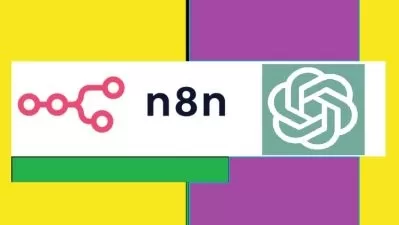ACCA MANAGEMENT ACCOUNTING: AN EASY AND PRACTICAL COURSE
Dr Graham Buckingham
17:32:54
Description
ACCA APPLIED KNOWLEDGE STAGE
What You'll Learn?
- The purpose of Management Accounting
- Data Analysis and Statistical Techniques
- Cost Accounting
- Budgeting
- Standard Costing
- Performance Measurement
Who is this for?
What You Need to Know?
More details
DescriptionWhat is Management Accounting?
It essentially involves using information and data to make an organization more efficient and successful. Consequently, management accountants are very important members of staff.
Why you should study Management Accounting?
Management accounting jobs are interesting and well paid. Generally, they are part of the executive and senior management team. In addition, other managers also need to understand the ideas and methods involved in this area in order to do their jobs well.
Will this course help me in Professional Examinations?
Yes, the course covers all the main concepts and techniques that you need to know. It follows the syllabus of the ACCA, Management Accounting MA Applied Knowledge course. It can also be use for other accounting qualifications, including Certified Public Accountants CPA, Chartered Accountant CA and Association of Accounting Technicians AAT.
What is the style of teaching?
The course is split into fourteen sections and then within each section there are a number of short lessons. Each new topic is introduced and then it is explained using a mixture of videos of myself teaching in a classroom, cartoons explaining the important concepts and then detailed teaching of each topic. At the end of each section there is a short quiz to ensure you understood that section. Answers and explanations are given.
The course is designed to be as practical as possible. It is aimed at a person who is currently working as an accountant, studying accounting and finance at university or college or who needs to understand these topics as part of their job.
Why should I take this course?
I qualified as a Chartered Accountant with PwC in London and then worked for twenty years as an accountant. Over the last ten years I have taught accounting in a university. I understand the practical day to day work of an accountant but also have a lot of experience of helping students to do well and pass their accounting exams. At the end of term students have rated my teaching very highly.
Are there any requirements?
You do not need at previous knowledge. I designed the course to start at the basics and then move slowly so that students can easily understand this course.
Who this course is for:
- Accountants and bookkeepers who are studying for a professional qualification. This includes ACCA, CPA, ACA, AAT and CFA.
- Students at university and college who are studying accounting and finance.
- Managers who need to understand the main concepts in management accounting.
What is Management Accounting?
It essentially involves using information and data to make an organization more efficient and successful. Consequently, management accountants are very important members of staff.
Why you should study Management Accounting?
Management accounting jobs are interesting and well paid. Generally, they are part of the executive and senior management team. In addition, other managers also need to understand the ideas and methods involved in this area in order to do their jobs well.
Will this course help me in Professional Examinations?
Yes, the course covers all the main concepts and techniques that you need to know. It follows the syllabus of the ACCA, Management Accounting MA Applied Knowledge course. It can also be use for other accounting qualifications, including Certified Public Accountants CPA, Chartered Accountant CA and Association of Accounting Technicians AAT.
What is the style of teaching?
The course is split into fourteen sections and then within each section there are a number of short lessons. Each new topic is introduced and then it is explained using a mixture of videos of myself teaching in a classroom, cartoons explaining the important concepts and then detailed teaching of each topic. At the end of each section there is a short quiz to ensure you understood that section. Answers and explanations are given.
The course is designed to be as practical as possible. It is aimed at a person who is currently working as an accountant, studying accounting and finance at university or college or who needs to understand these topics as part of their job.
Why should I take this course?
I qualified as a Chartered Accountant with PwC in London and then worked for twenty years as an accountant. Over the last ten years I have taught accounting in a university. I understand the practical day to day work of an accountant but also have a lot of experience of helping students to do well and pass their accounting exams. At the end of term students have rated my teaching very highly.
Are there any requirements?
You do not need at previous knowledge. I designed the course to start at the basics and then move slowly so that students can easily understand this course.
Who this course is for:
- Accountants and bookkeepers who are studying for a professional qualification. This includes ACCA, CPA, ACA, AAT and CFA.
- Students at university and college who are studying accounting and finance.
- Managers who need to understand the main concepts in management accounting.
User Reviews
Rating
Dr Graham Buckingham
Instructor's Courses
Udemy
View courses Udemy- language english
- Training sessions 180
- duration 17:32:54
- Release Date 2024/05/10
















